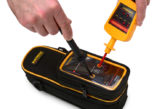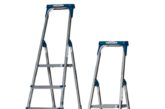
With cases of Legionnaires’ disease on the rise, The Chartered Institute of Plumbing and Heating Engineering (CIPHE) is urging installers to be vigilant when it comes to potential sources of Legionella bacteria.
Falling prices of luxury items such as hot tubs and spa baths, coupled with warm temperatures, has created a perfect opportunity for legionella and other water associated problems according to the CIPHE.
With the Institute issuing warnings to consumers about the potentially fatal disease, Kevin Wellman, CEO, commented: “While those of us in the industry know that all man-made hot and cold water systems can provide an environment ripe for the Legionella bacteria to grow, the average consumer has no idea it can thrive in places such as hot tubs, whirlpool baths, compost heaps and even garden hoses.
“The growing popularity in domestic hot tubs and spa baths means that many families have a potential source of an outbreak within their homes and gardens. While the CIPHE is working to raise awareness that these appliances need to be correctly installed, maintained, cleaned and chlorinated, many members of the public are blissfully unaware of the dangers.
“Traditionally, outbreaks have hit commercial and industrial premises such as that associated with a Bournemouth Health Spa in June of this year. However, it is looking likely that our industry will find itself dealing with more and more domestic outbreaks like the recurring incidence at Dolphin Square, and we need to be prepared.”
Figures from Public Health England show a seasonal rise in cases from June to October. Crucially, last year saw an increase in reported/notified cases to 814, from which 532 were confirmed cases of Legionnaires’ disease. This represents an increase of some 20% on the previous year. Harmful Legionella bacteria can incubate in as little as two to 10 days, meaning that those who let their hot tub and spa bath maintenance and disinfection regime slip could very quickly be at risk.
“There is no legislation covering domestic hot tub installations,” continued Kevin. “With annual deaths caused by poor plumbing now outnumbering those caused by Carbon Monoxide poisoning, we need to address the dangers that poorly designed or maintained systems can bring. The industry needs to be equipped with the knowledge and expertise to safely deal with potential legionella sources. It’s no surprise that poorly designed, installed and maintained systems are the most at risk.”
Need to brush up on your knowledge of Legionella? The Safe Water Guide: Scald Prevention and Legionella is available from the CIPHE at a price of £20 for CIPHE members and £35 for non-members. Contact head office on 01708 472791 or email [email protected]













